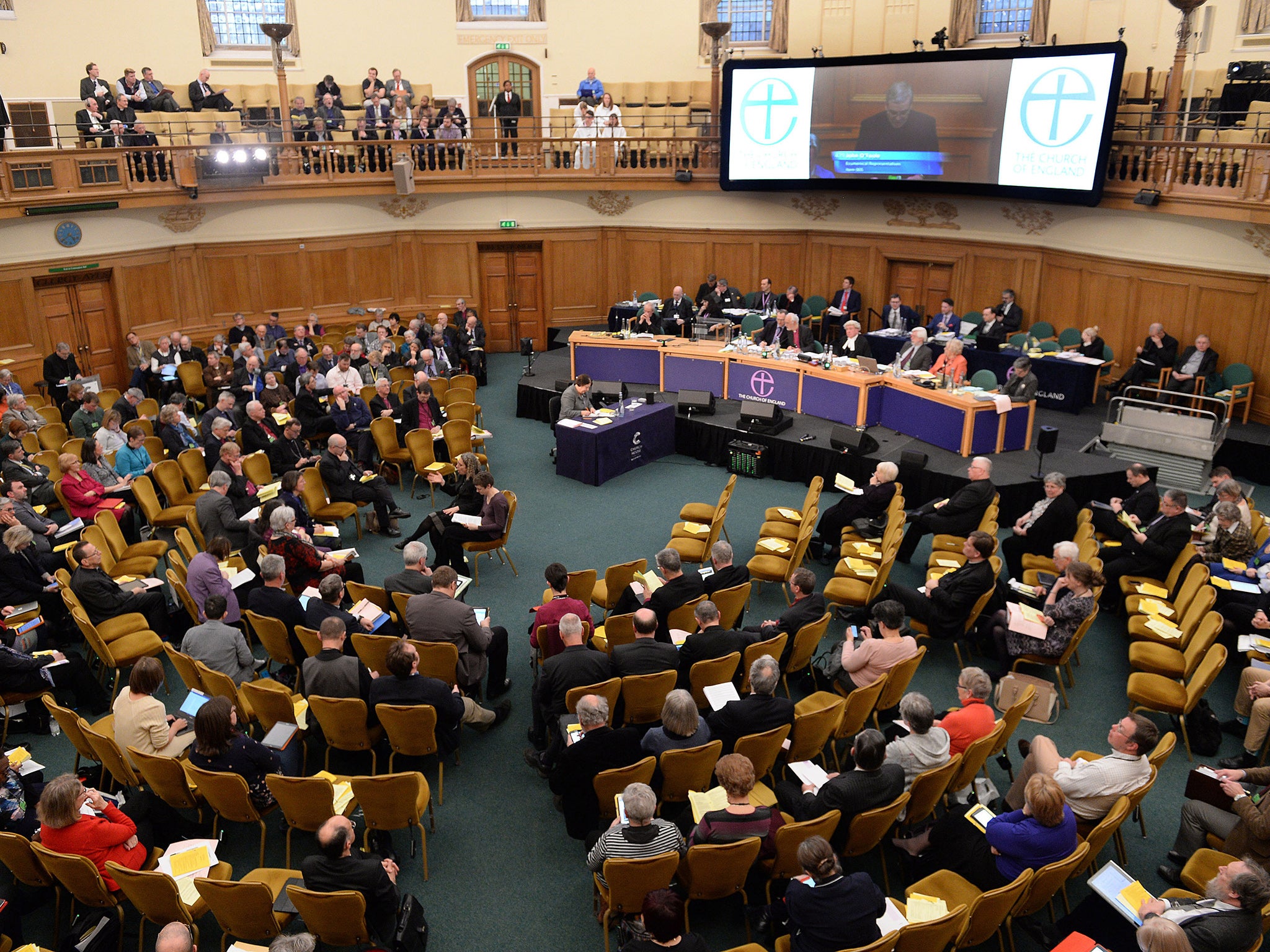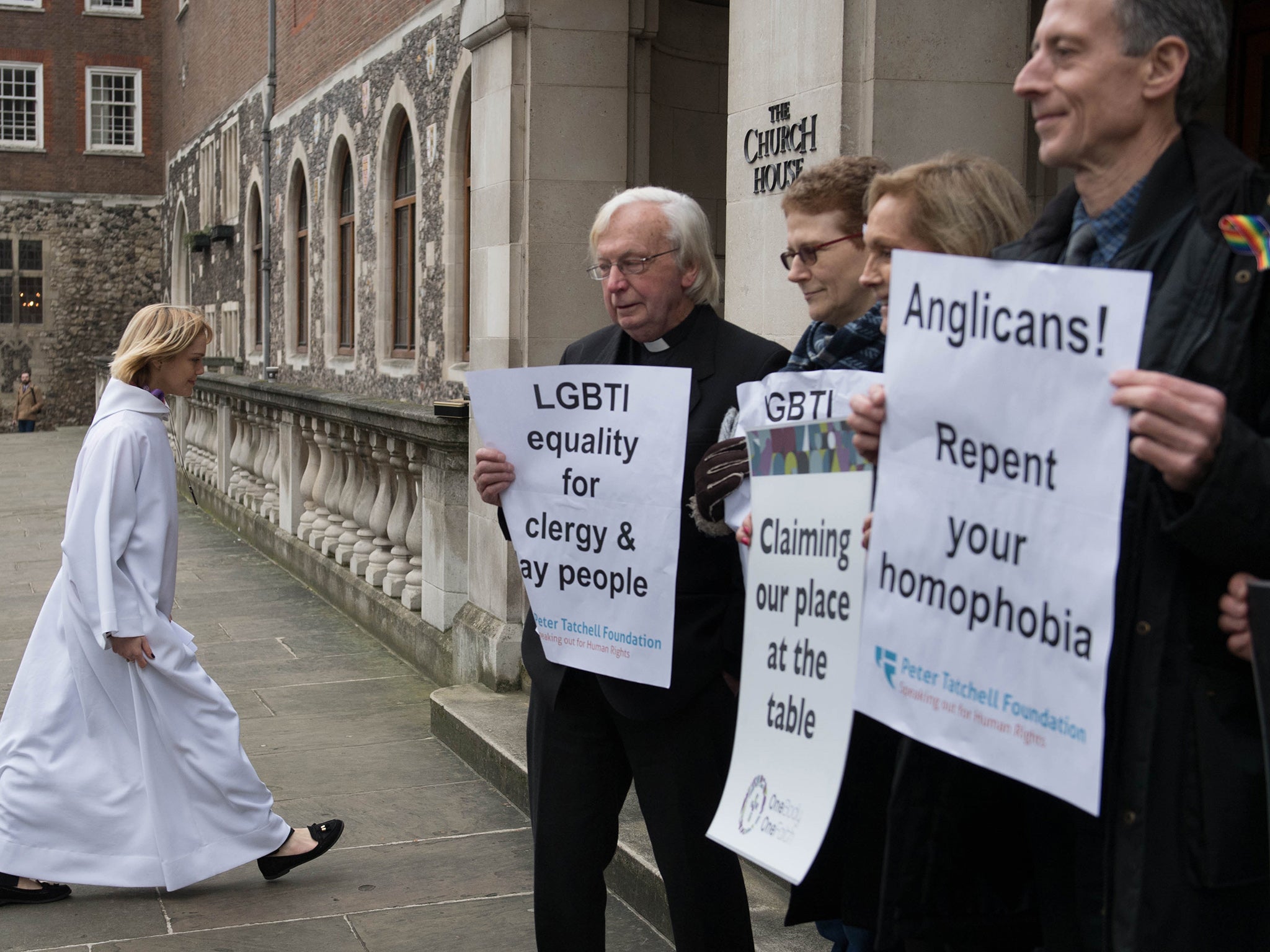Church of England General Synod votes to reject controversial same sex marriage report
Synod rejects report calling for ban on same sex marriage in the church to be upheld

The Church of England’s General Synod has voted to reject a report which recommended the church’s continued opposition to same-sex marriage.
The report by the House of Bishops, which was presented to the Synod meeting in London, called for the Church to adopt a “fresh tone and culture of welcome and support” towards gay people – but retain its opposition to equal marriage.
It also suggests gay and straight men and women training for the priesthood should face the same questions about their lifestyle – a suggestion which has been likened to the “Don’t Ask, Don’t Tell” policy of the US military.
Campaigners hailed the decision to throw out the report as "a victory for love and equality".
Peter Tatchell, who has campaigned on the issue for 50 years, said: "This vote to, in effect, reject the Bishops' report is a victory for love and equality.
"It is the biggest defeat for the Anglican leadership in many decades. Synod refused to endorse the anti-LGBT exclusion and discrimination enshrined in the Bishops' recommendations."
Due to the controversial nature of the proposal the Synod – which is made up of three houses the Bishops, the Clergy and the Laity – was only asked to “take note” of the proposal, therefore the vote to reject it is not binding but means the Bishops must use it to inform future work.
Under the rules of the Synod, if one section votes to reject the proposal it will fail. It is currently unclear which house voted to reject it.
Current church doctrine states that while LGBT people are able to become members of the clergy they must be celibate and cannot get married or conduct same-sex wedding ceremonies.
According to new data released by NatCen’s British Social Attitudes survey, half of Anglicans now believe there is nothing wrong with same sex relationships.
This is much lower than the per cent of people with no religion, which was 73 per cent, but indicates a marked softening of attitudes in the last 20 years.
The survey found 17 per cent of Anglicans believed same sex relationships were always wrong – compared to 53 per cent in 1983.
The acceptance of gay marriage within the Anglican community is seen as one of the last major hurdles for equal marriage campaigners in the UK after it was legalised in Great Britain in 2014.
But the Church has been accused of dragging its heels over the issue.
In an open letter a group of 14 retired bishops accused the House of Bishops of seeing their task as “managing rather than perhaps enabling or leading” on the issue.

The bishops said the report had failed to include the “authentic voice” of the LGBT community on the issue and was instead focused on talking about them rather than to them.
The letter said: “Our perception is that, while the pain of LGBT people is spoken about in your report, we do not hear its authentic voice.
“Our experience would lead us to doubt whether there was an expectation around that canons and doctrinal statements would be changed within any reasonable timescale, and that focus seems to have taken far more time than it would have done if the authentic voices of lesbian and gay people had been allowed to express the major focus of their hopes.”
But the bishops responsible for drafting the report stood by it when speaking to the Synod.
The Right Rev Pete Broadbent told members: “I don’t want to spend time in explanation. I don’t want to make excuses for the House of Bishops’ document.
“I do want to apologise to those members of Synod who found our report difficult, who didn’t recognise themselves in it, who had expected more from us than we actually delivered, for the tone of the report.
“On behalf of the House, and without being trite or trivial, I’m sorry.”
He said he “regrets” that some members of Synod do not want to take part after losing trust in the process, but the report, while a “pretty conservative document”, does not suppress the “diversity of understanding and the range of views that exist” among bishops.
Additional reporting by PA
Join our commenting forum
Join thought-provoking conversations, follow other Independent readers and see their replies
Comments